There’s nothing better than farm-fresh foods, so if you enjoy eating and cooking with fresh fruits, vegetables, and herbs, consider adding a food garden to your property! Growing food at home is an excellent way to spend time with family, and control what you eat while reducing your carbon footprint and your grocery bill. We’ve shared a quick start guide to help you figure out what you want your garden to look like and some tips to consider along the way!
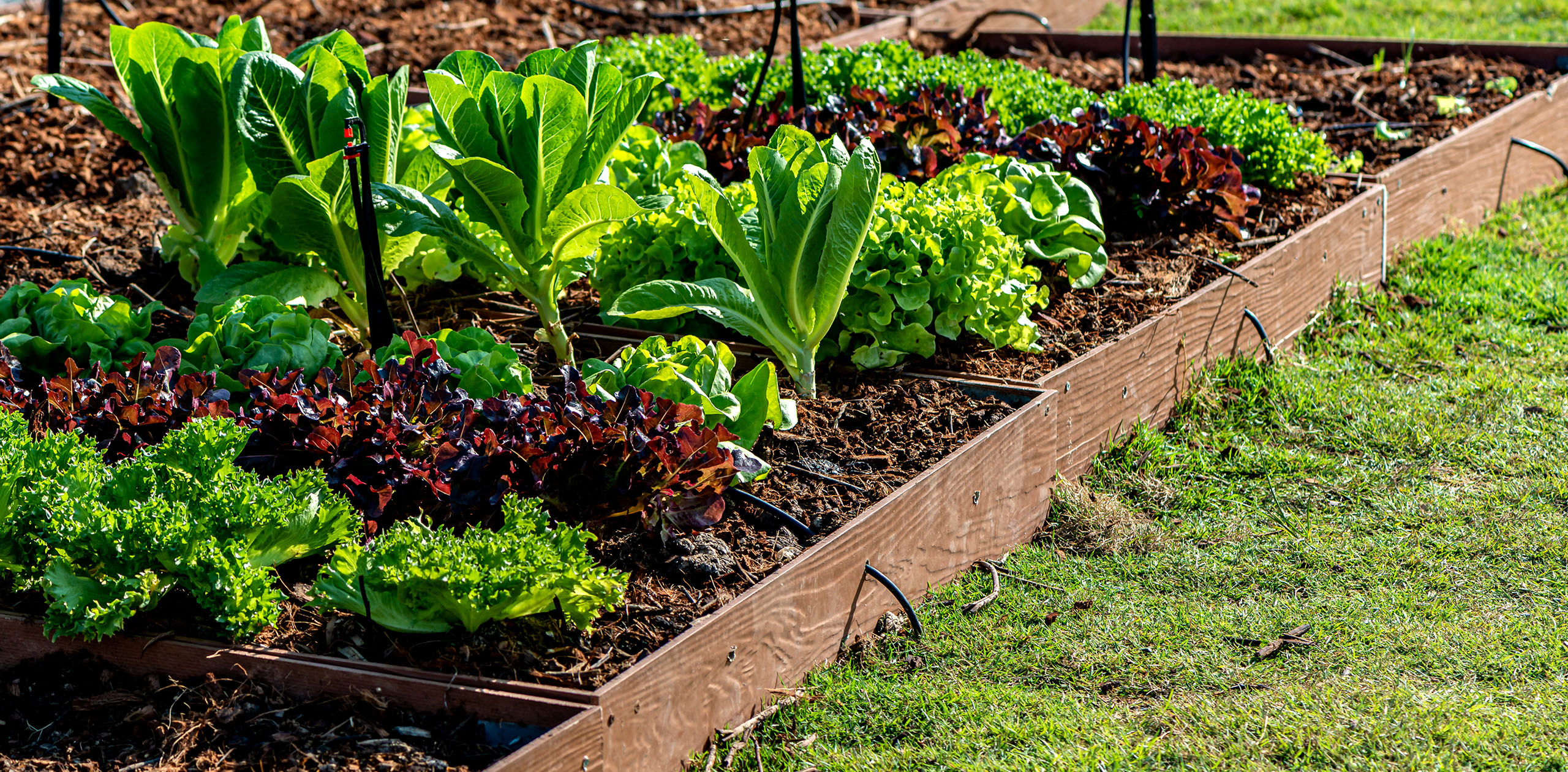
A vegetable, fruit, or herb garden requires full sun throughout the day allowing your plants to harness the sun’s energy for photosynthesis to grow and produce fruit. Find a spot on your property that is relatively flat and easy for you to navigate around. Your garden will require regular watering so ensure you can access water from the area, whether through a hose, rain barrel, or irrigation system.
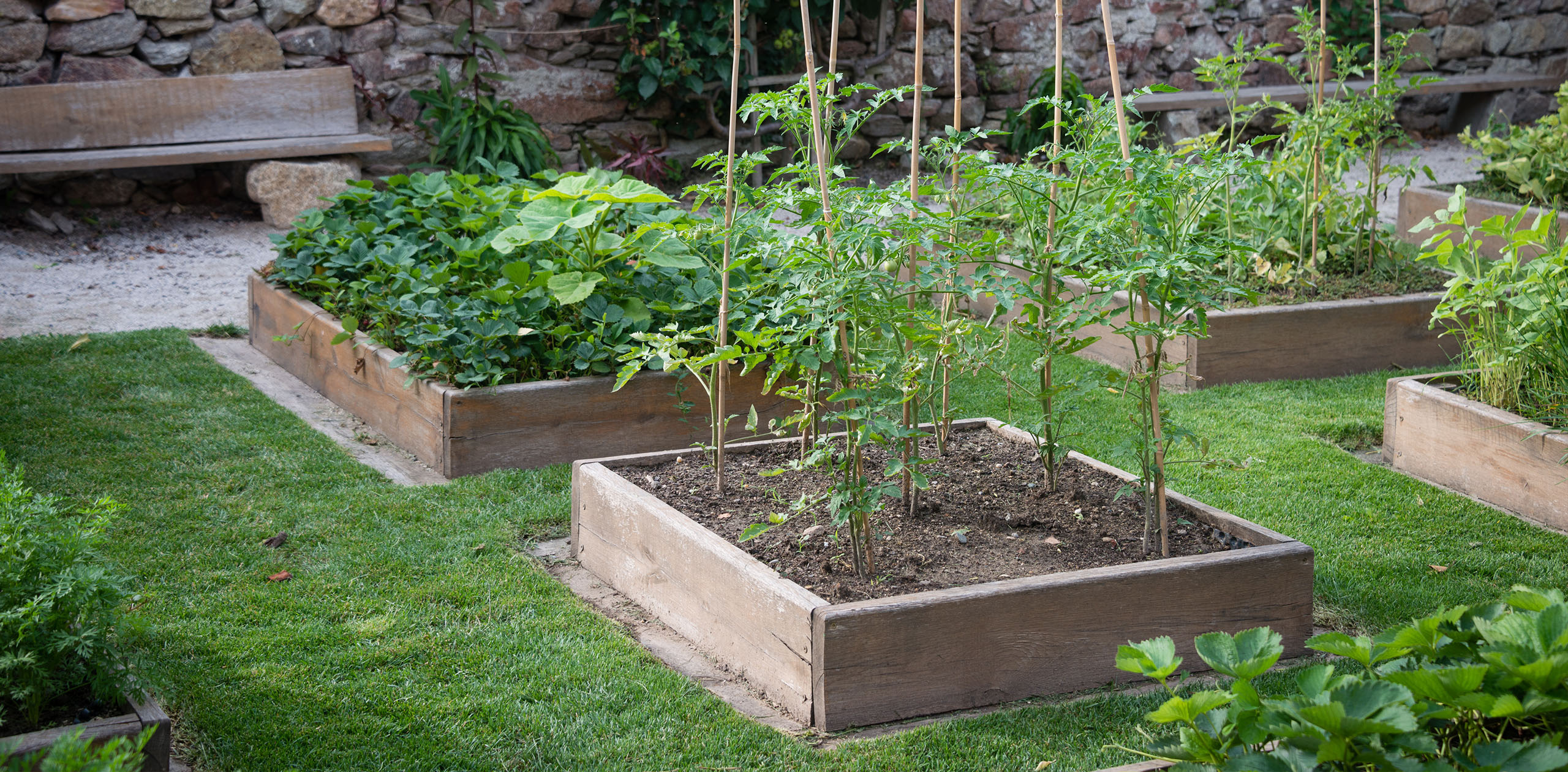
Seeds and sprouts can be planted directly in the soil, into raised beds, or you can opt for container planting. Planting directly into the ground or containers allows you the flexibility to choose where and when you grow again next year. Alternatively, raised beds are a visually appealing option that brings the plants up to a level where it is a little easier to control weeds, pests, and general plant maintenance.
If planting directly into the soil, have your soil tested to determine if any toxic chemicals in the ground could be absorbed into the plants you plan to eat. If you are building raised beds filled with compost or purchased soil, you can skip this step as long as you have a barrier between the ground and the contents of a raised bed. You will also need to make sure that the soil in a raised bed or container can drain to avoid rotting roots or flooding your plants.
Lastly, before selecting your preferred garden type, consider the animals that frequent your landscape. If you have deer, rabbits, groundhogs, or squirrels that roam freely on your property, you may also consider fencing your garden to deter animals from snacking on your harvest.
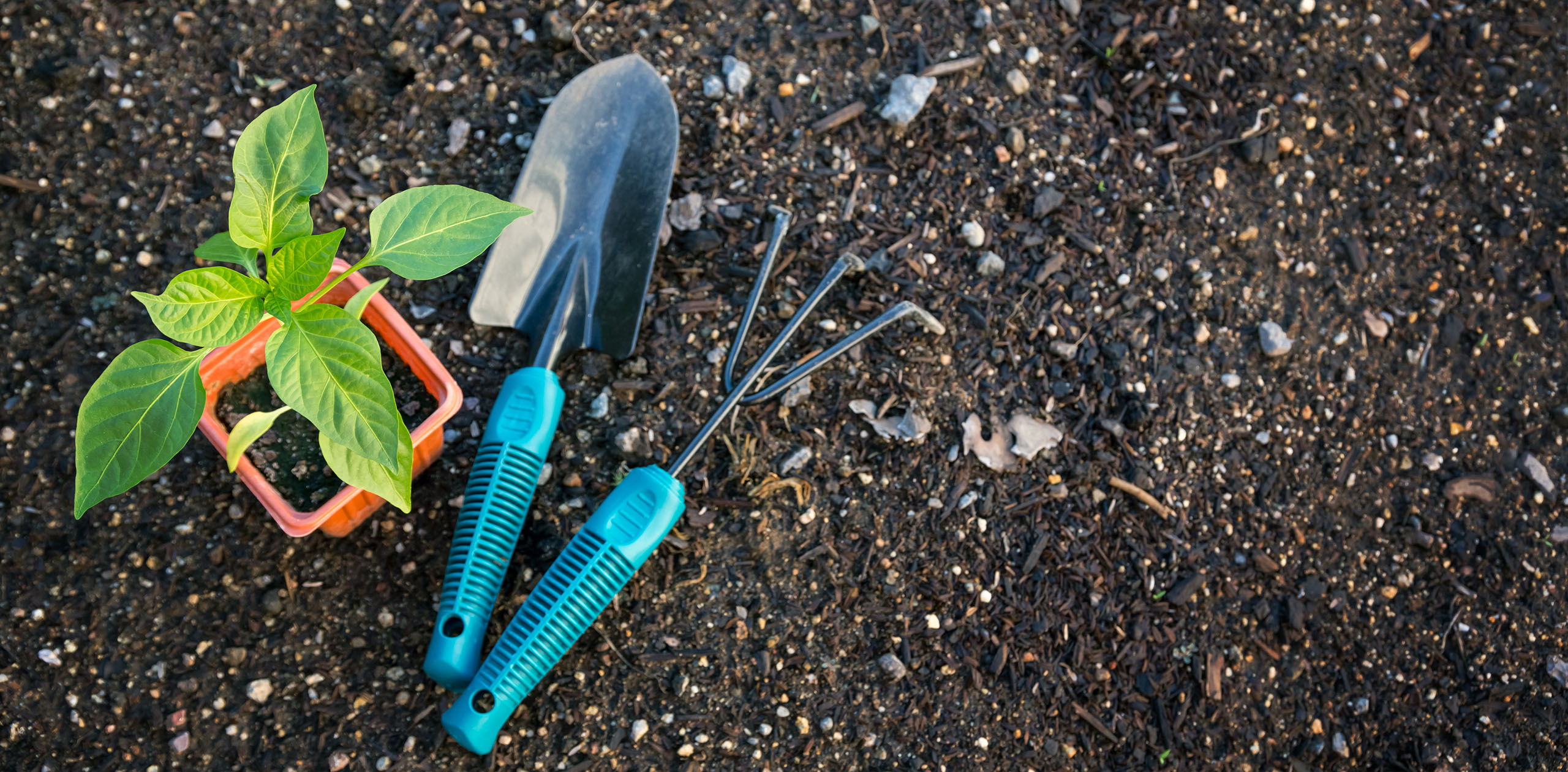
Delaware falls into planting zone 7, with the northern part of the state falling into 7a and the southern and coastal regions falling into 7b. Depending on your location, use the planting zone guide to determine when you plant your vegetables to ensure they can grow without the threat of frost or high heat.
Another important consideration is if you choose to plant from seed or grow starts purchased at a nursery. Growing from seed typically requires some pre-planning, so if you want to expedite the process growing from pre-bought plants allows you to hit the ground running!
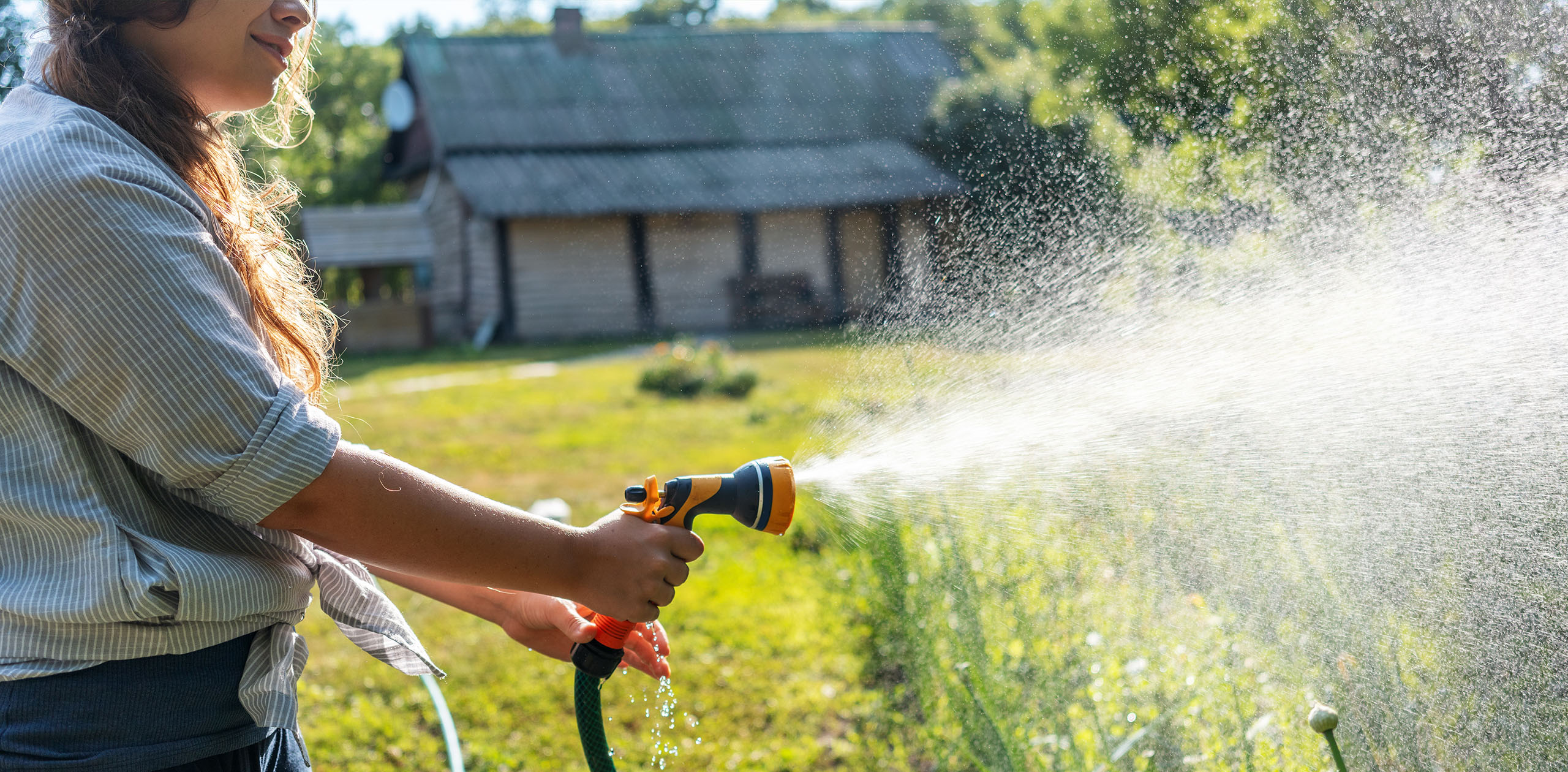
Your garden will need watering daily. Wilted leaves and yellow or burnt spots indicate that your plants aren’t getting enough water. However, overwatering can also lead to problems, so verify that your garden drains well after each water. The best times to water are early in the morning before the sun becomes hot or in the evening as the sun has set. Watering at these times allows the water to absorb into the soil instead of quickly evaporating in the hot sun.
Your garden may also benefit from fertilizer and compost to strengthen your plants with nutrients. Compost can be purchased or made with an at-home composter. Depending on how often you are comfortable with weeding you can also choose whether to apply herbicides to your garden.
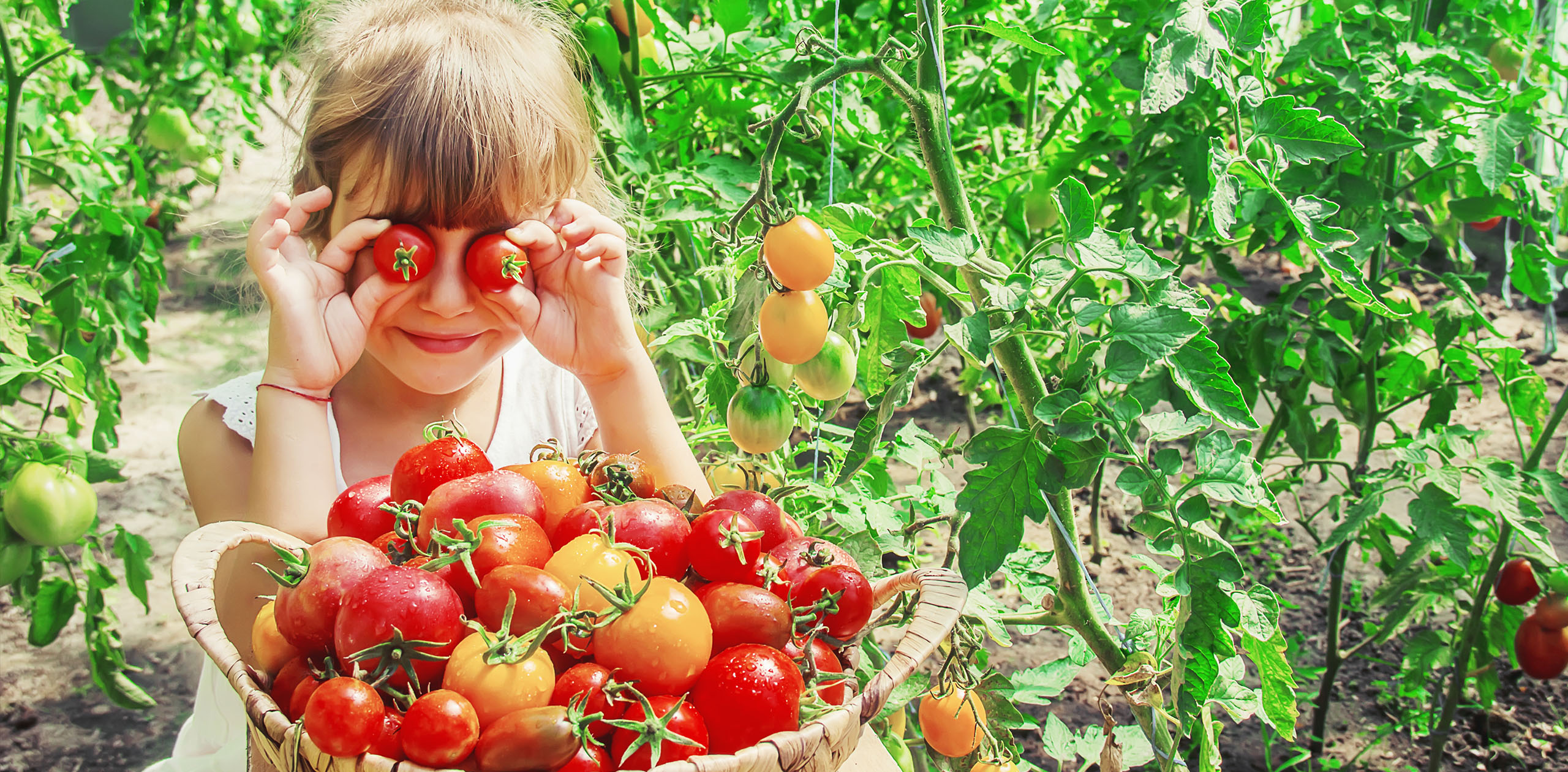
The best part of any gardening journey is reaping the benefits of your hard work! Nothing tastes better than a home-grown tomato or a salad with lettuce fresh from your garden. If you follow zone planting guides, your garden can produce food well into the fall. Check out this Vegetable Garden Planning Schedule to see which plants do best in our growing zone during the summer season.
If you have questions about creating a designated gardening area, contact us! We can help design and renovate your existing landscape to both support a produce garden and elevate your entire property.
